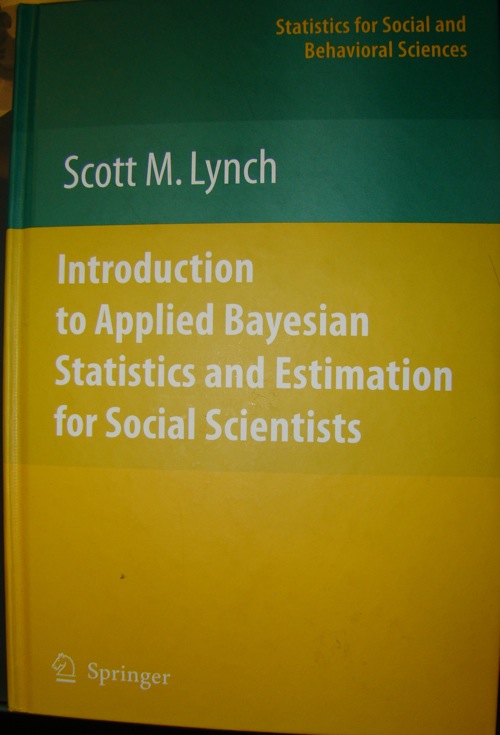
This will be a super short review, mainly because most of the content of this book are formulas. The book starts off with a repetition of basic statistical concepts like random variables, ML estimates etc. Afterwards, Lynch presents the basics of Bayesian statistics. He softly introduces Gibbs sampling and shows why Metropolis-Hasting is useful. Afterwards, Lynch shows different methods to check the model fit, like trace plots. In the last sections he shows how to construct and estimate linear Bayesian models and GLMs. In the last section he shows the power of Bayesian models in hierarchical modeling and introduces you to WinBUGS.
Lynch explains everything in detail and even without advanced statistics knowledge, you can work through this book. It’s really focused on social scientists but approachable for other people. There are several examples and one which impressed me the most was the following:
He took polling data from the Bush vs. Kerry presidential campaign. The polls said that Kerry was leading with 50% against Bush’s 46%. The CI, however, was +/- 3%p, so not statistical significant.
With Bayesian methods, you model the probability distribution that Kerry wins. You will still come to the same result but you can also check other things, like P(Kerry wins < 0.5) which is just about 32%.
Later he shows different methodologies to model this distribution, like incorporating past data.
Introduction to Applied Bayesian Statistics and Estimation for Social Scientists helped, at least me, to understand Bayesian statistics in more depth and why things like Gibbs sampling and MH algorithm are necessary. If you are interested in Bayesian statistics and like application, than this book is for you!
